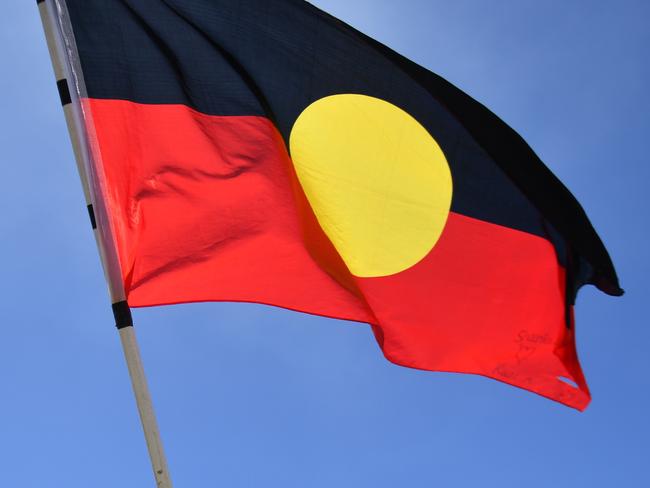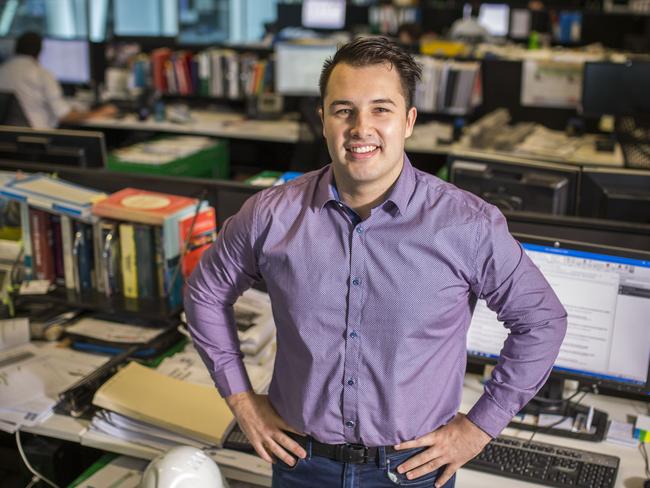Warren Mundine: Earning the way to close the gap for indigenous Australians
THE gap is not closing. Indigenous Australians are going backwards. It will persist until all indigenous people participate in the real economy, says Warren Mundine.
Opinion
Don't miss out on the headlines from Opinion. Followed categories will be added to My News.
In the past few weeks I’ve attended two gatherings on indigenous issues that painted a sharp contrast. One was steeped in the mindset of the past, the old way. The other shone a bright light on a better path — what should be the way of the future.
One event was the Redfern Statement Breakfast, a massive event in Canberra with senior politicians, including the Prime Minister and Opposition Leader, indigenous leaders and others gathered to hear speeches about the statement. Described as an “urgent call for a more just approach” to indigenous affairs, the Redfern Statement is the latest solution to fix the indigenous disadvantage plaguing this country.
Two things struck me about the Redfern Statement.
First, there’s nothing new. It proposes more funding, more indigenous representative bodies, more bureaucracy and more changes to programs, initiatives, frameworks, partnerships and service delivery structures.
Very few proposals are implementable as-is. More planning and discussion is needed to identify the actual steps to implement them and the specific outcomes to be achieved. Already a series of workshops are planned to identify the practical solutions and beginnings of implementation.

Secondly, it’s almost entirely focused on community service delivery. The proposals are grouped into categories of Health, Justice, Preventing Violence, Early Childhood, Disability and Meaningful Engagement. It’s almost silent on indigenous participation in the real economy. Employment is a short subset of “Meaningful Engagement”, where it proposes a new indigenous representative body to drive employment and economic solutions. The body’s objectives are framed more around community development than economics. There’s no mention of indigenous-owned businesses or entrepreneurship, trades and apprenticeships or tertiary education. Or of creating commerce in indigenous communities or home ownership.
And it’s littered with the language of victimhood and barriers, such as whether jobs are “suitable and meaningful for our people”, references to racism and discrimination and whether workplaces are indigenous-friendly.
The Redfern Statement Breakfast brought the usual suspects together at yet another gathering to discuss the same old business talked about for decades. The same week, the ninth Closing the Gap Report was released. It showed the gap is not closing and indigenous Australians are actually going backwards.
The gap will persist until all indigenous people participate in the real economy. That means a real job, not work for the dole, CDP or other busywork. It means small business, private enterprise and home ownership, not community programs, not-for-profit entities and social housing.
Economic development is what lifts people out of poverty. But government attempts at economic development for indigenous people are bogged down in a government dependency mindset. A lot of time and energy is directed to things that don’t drive economic participation, such as welfare and grants. The Redfern Statement won’t change the situation of indigenous people. It’s underpinned by the same mindset.
The other event I attended was the CareerTrackers Annual Dinner. CareerTrackers helps indigenous university students get paid internships with private sector employers during their studies with the aim of them transitioning to fulltime jobs on graduation. The students come from across Australia, studying a range of fields including economics, the sciences and engineering. This year 2000 people gathered to celebrate the interns’ achievements.

Every year, some students tell their stories. Each is inspiring. Many recount numerous difficulties and setbacks in their education path and home lives. But their overwhelming message is always of opportunity.
This year CareerTrackers CEO Michael Combs spoke of a message he imparted to students of “indigenous advantage”. Later, academic excellence awards were presented. CareerTrackers celebrates excellence and success, not victimhood and barriers.
The Australian Indigenous Education Foundation (which I chair) and the Australian Indigenous Mentoring Experience also unashamedly embrace achievement. CareerTrackers, AIEF and AIME students will join the real economy through education, jobs and the message that they have the world at their feet.
The Redfern Statement opens with a decades-old quote from Mick Dodson when he was Social Justice Commissioner: “Social justice is what faces you in the morning. It is awakening in a house with adequate water supply, cooking facilities and sanitation. It is the ability to nourish your children and send them to school where their education not only equips them for employment but reinforces their knowledge and understanding of their cultural inheritance. It is the prospect of genuine employment and good health: a life of choices and opportunity, free from discrimination”.
Replace “social justice” with “economic participation” and you have my vision for indigenous people.
It’s time to forge a new path — one based on economic participation.
Nyunggai Warren Mundine AO chairs the Yaabubiin Institute for Disruptive Thinking




